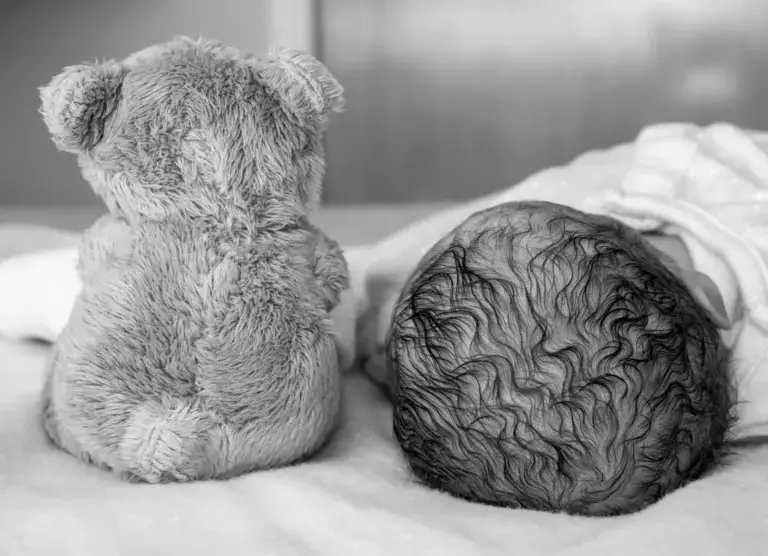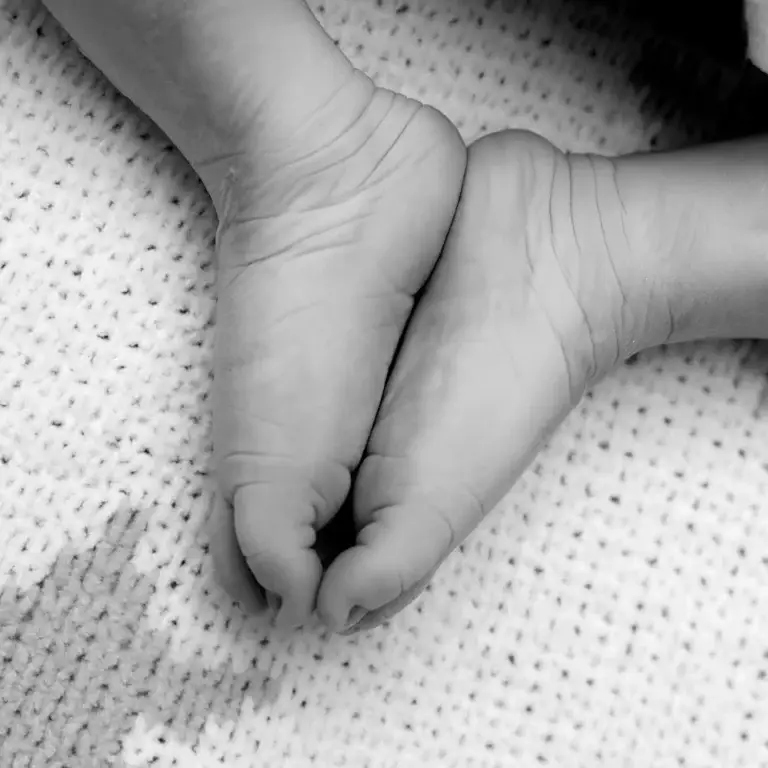Tom had spent months dreaming about the moment he would meet his son. From the day his partner, Lucy, told him she was pregnant, everything had changed. The pair threw themselves into preparations with joy and excitement. Together, they painted the nursery in soft shades of green, lovingly picked out baby clothes, and debated over which pram would be best. Every small detail felt monumental.
“I was so ready to be a dad,” Tom said, a faint smile crossing his face. “We’d spent so many nights lying in bed, talking about what life would be like once Samuel was here. I pictured teaching him how to ride a bike, watching cartoons together, and reading him bedtime stories. It all felt so real, like this amazing adventure was just about to begin.”
When Samuel was born, Tom felt an instant connection he’d never experienced before. “The first time I held him, I was overwhelmed,” Tom said, his voice trembling. “He was so small, so perfect. He had Lucy’s nose, my chin, and the tiniest fingers that wrapped around mine. In that moment, I thought, ‘This is it. This is what life is all about.’”
For a few blissful hours, Tom and Lucy soaked in every detail of their son. They laughed about how he scrunched his face when he yawned and marvelled at how someone so tiny could bring them so much joy. But the joy was short-lived.
“Everything changed so suddenly,” Tom said. “The doctors came in and said they were concerned about his breathing. They told us they needed to take him to the neonatal unit for tests. I didn’t even have time to process what they were saying before they took him away.”
Tom followed Samuel to the neonatal unit, where he was placed in an incubator surrounded by wires and monitors. “Seeing him like that was unbearable,” Tom said, his hands trembling as he spoke. “He looked so fragile, so small. I wanted to hold him, to do something, but all I could do was stand there, helpless.”
For the next 48 hours, Tom and Lucy sat by Samuel’s side, watching as the medical team worked tirelessly to keep him stable. “The machines were always beeping, the nurses and doctors moving quickly around him,” Tom said. “It felt like we were living in a different world, one where nothing else mattered except that little incubator.”
A kind nurse suggested they take a photo of Samuel, something Tom hadn’t even considered. “At first, I didn’t want to,” he admitted. “I didn’t want to think about the possibility of losing him. But Lucy insisted. She said, ‘We need to remember him, no matter what happens.’”
The photo showed Samuel lying in his incubator, his tiny hand pressed against the glass. “It wasn’t the picture I imagined taking of my son,” Tom said, tears welling in his eyes. “I’d dreamed of photos of him smiling, wrapped in a blanket, or in our arms. But this was all we had, and now, it’s everything.”
Despite the efforts of the doctors and nurses, Samuel’s condition worsened. On the third day, they were told that there was nothing more that could be done. “Hearing those words shattered me,” Tom said, his voice breaking. “I just sat there, staring at the floor, feeling like I’d failed him. I was his dad. I was supposed to protect him, and I couldn’t.”
Tom and Lucy were given the chance to hold Samuel in his final moments. Tom cradled his son, tears streaming down his face as he whispered to him. “I told him how proud I was of him,” Tom said. “I told him how much I loved him, how much we’d dreamed for him. I promised him that I’d carry him with me for the rest of my life.”
When Samuel passed, Tom felt a hollowness he’d never known before. Leaving the hospital without his son was a pain he couldn’t put into words. “It didn’t feel real,” he said. “I walked out of those doors, and it was like the world had stopped. We had come in as parents, and now… we were leaving with nothing.”
In the weeks that followed, Tom struggled to navigate his grief. While friends and family surrounded Lucy with love and support, Tom felt invisible. “Everyone asked how Lucy was doing, which I completely understood,” he said. “She’d just lost her son, and she was devastated. But no one asked how I was. I felt like I had to grieve in silence, like my pain didn’t matter as much.”
Tom found himself withdrawing from others, unable to express the weight he carried. “I didn’t know how to talk about it,” he said. “Every time I tried, the words would get stuck in my throat. So, I just stopped trying.”
The photo of Samuel became Tom’s lifeline during those dark days. “Every night, I’d sit and look at that picture,” he said. “I’d trace his little hand through the glass, remembering how it felt to hold him, even for that short time. It wasn’t enough, but it was something. It reminded me that he was real, that he mattered.”
As time passed, Tom began to realise that his grief didn’t have to be silent. He joined a support group for bereaved fathers, where he found solace in sharing his story and hearing others share theirs. “It was the first time I felt like someone truly understood what I was going through,” he said. “Talking about Samuel, saying his name out loud—it helped me start to heal.”
Tom and Lucy created a memory box for Samuel, filled with his hospital bracelet, a lock of his hair, and that precious photo. “It’s our way of keeping him close,” Tom said. “Whenever I miss him, I open the box and hold those pieces of him. It’s not enough, but it’s all we have.”
Looking back on his journey, Tom reflects on the profound love he feels for his son. “Samuel taught me what it means to love unconditionally,” he said. “Even though he’s not here, he’s still a part of me. I’ll carry him with me for the rest of my life.”
The photo of Samuel remains on Tom’s bedside table, a quiet reminder of the little boy who changed his world forever. “It’s not the life I dreamed of for him,” Tom said. “But his memory is my strength. He’ll always be my son, and I’ll always be his dad.”

